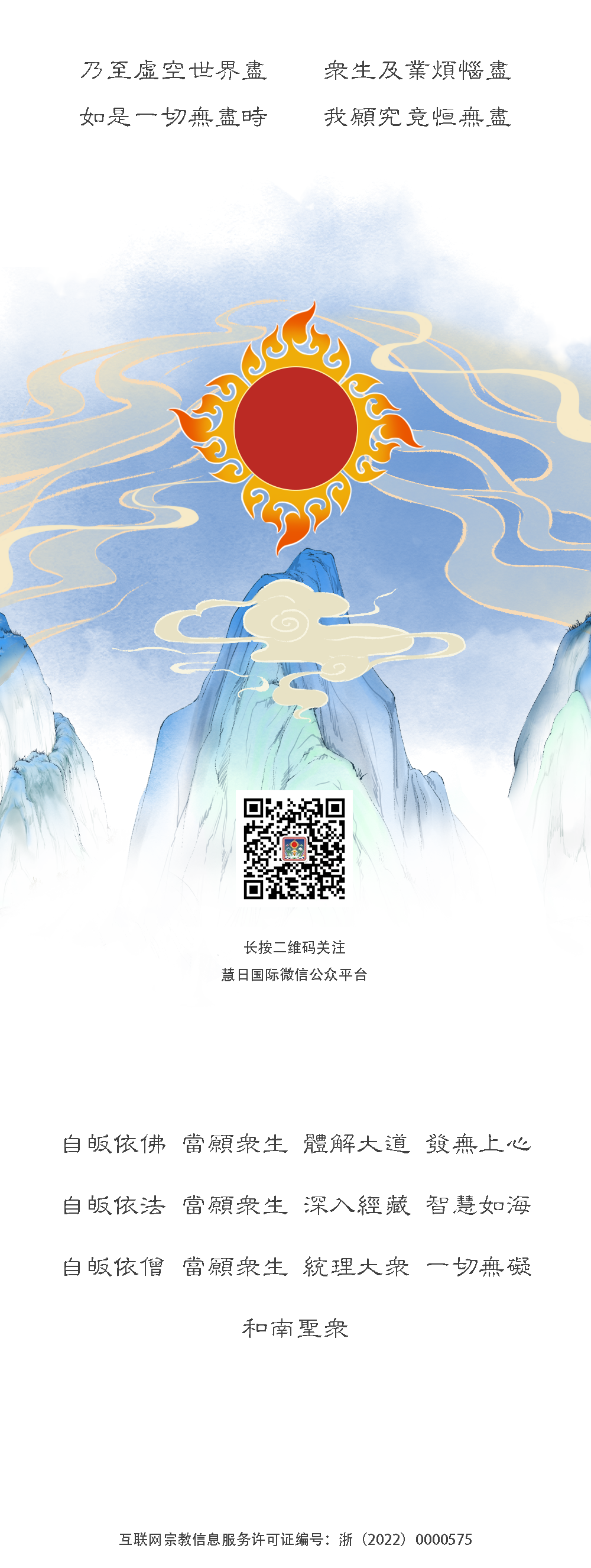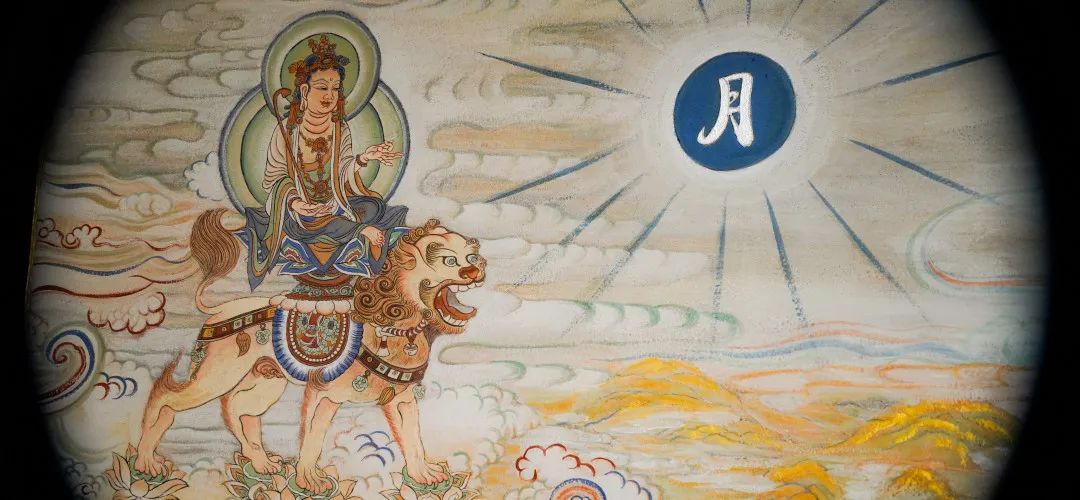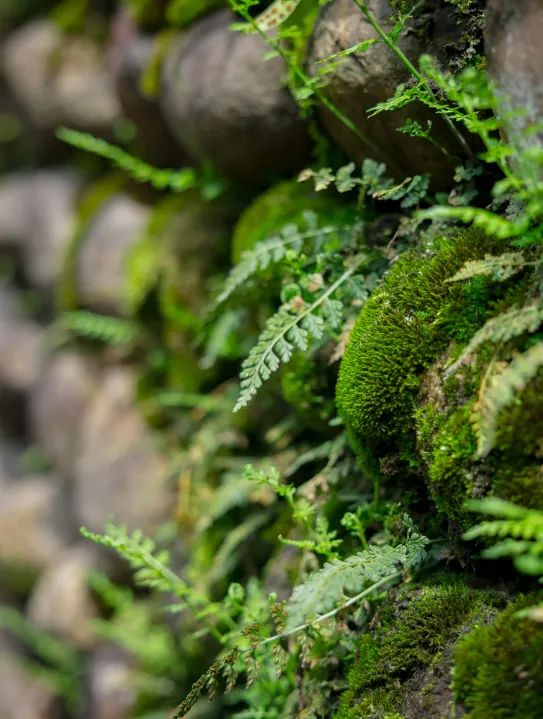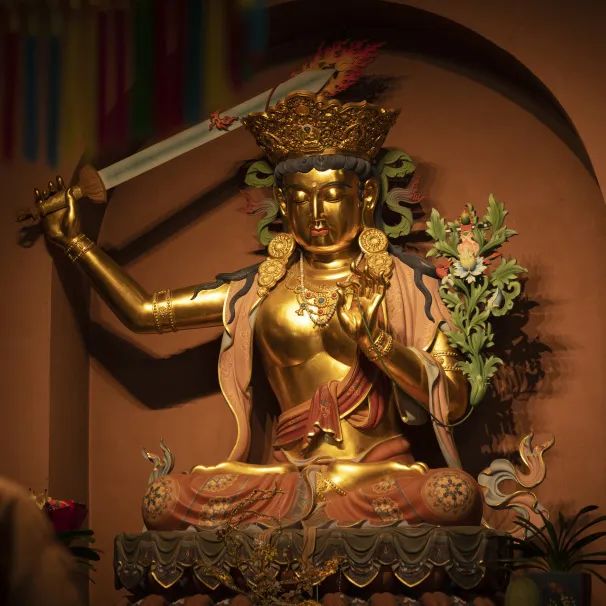生命并没有偏和远,重要的是找到生命的自信
生命并没有偏和远,
重要的是找到生命的自信
Life Has No Periphery or Remoteness, What Matters Is Finding the Confidence in One's Own Life


五台山是中国佛门圣地之首。
佛陀曾经亲自介绍中国五台山,它是文殊菩萨为这个世界说法之处。
几千年过去了,五台山依然屹立着。
所以文殊菩萨在佛经里面也被称为“不败者”,祂不叫胜利者,祂叫不败者,就是在任何时代祂都不会衰败。
什么不败呢?是智慧不败。
所以对生命来说,最终的意义就体现在智慧上。
我们的智慧、生命境界,会超越我们的困境。
困境是一定的吗?
三维空间的障碍是真实存在的吗?
那要看从什么角度出发。
Our wisdom and spiritual realm can transcend the predicaments we get into.
Are predicaments absolute?
Are the obstacles in three-dimensional space truly real?
It all depends on our perspective.
井底的蛙看天觉得很大,是因为它没有跳到地面上。小溪的水觉得自己很好,当它来到大江河,融进大海洋的时候,才知道原来这么汪洋一片。
所以我们的困境是困境吗?
如果从认知、智慧的角度上来说,那只是认知不同而产生的人生局限;智慧升高的时候,这个局限性自然就化解了。
From the standpoint of cognition and wisdom, what we perceive as life's limitations merely arise from different levels of understanding.
As our wisdom elevates, these limitations naturally dissolve.
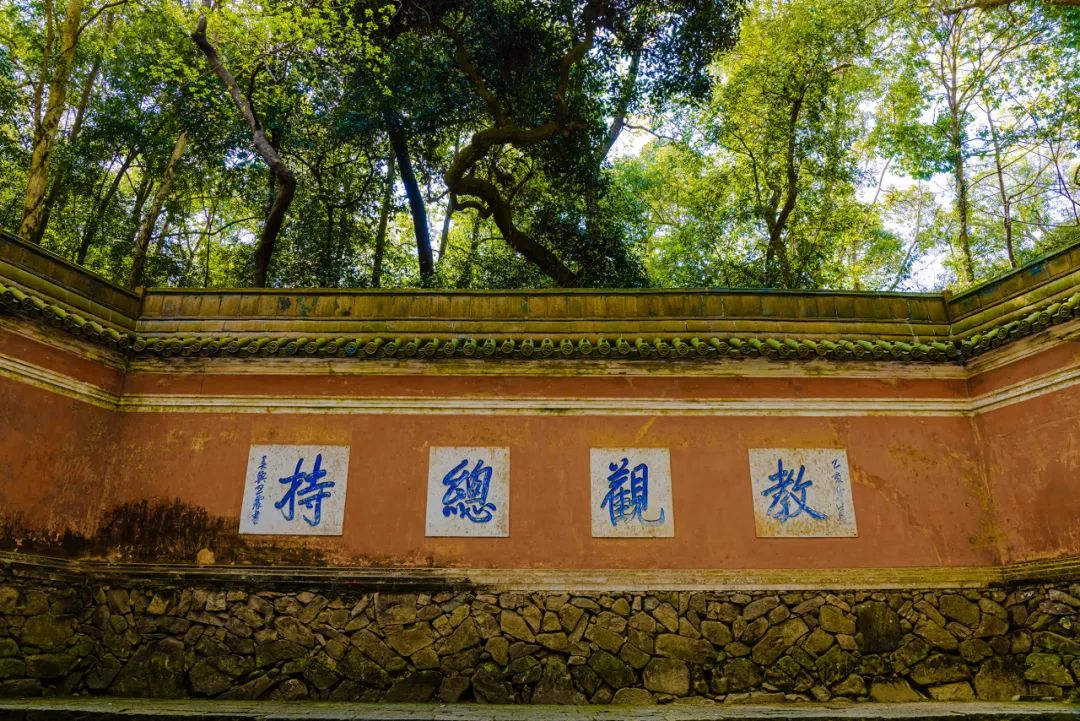
所以佛陀来到人间,只给我们智慧,
祂不谈给我们多少物质。
佛陀曾经讲过,
“众生,即非众生,是名众生”,
多精彩、多直指
——直指本质。
This is why when Buddha came to our world, He imparted only wisdom to us, rather than material wealth.
As Buddha once said, "Sentient beings are not inherently sentient beings; they are merely so called by such conventional designation”.
What profound and direct insight
- pointing straight to the essence.
我们看到的现象是真实的吗?
给它起的名字是真实的吗?
Are the phenomena we perceive real?
Are the names we assign them real?
这与老子《道德经》第一章所讲的 “道可道,非常道;名可名,非常名”
高度地吻合。
就这一个“道可道,非常道”里面就有三个“道”字,三个“道”字就有三个不同的层次。
宇宙真理的大道,当我们主观去认知的时候,已经偏离于客观的大道了;当我们再把它表述出来的时候,又偏离了。
这三个“道”:
标准答案的“道”,是第一个“道”;
我们非常努力地想去认知它,想去表述它,是第二个“道”;
我们每一个人就像月亮一样,在每一滩水里面所折射出的月光,是第三个“道”。
These are three levels of "Dao":
The first “Dao” is regarded as the absolute truth;
the second “Dao” is our earnest effort to comprehend and express it;
and the third “Dao” is like moonlight reflected in different pools of water – it represents how each of us perceives the Dao.
所以“道”变到“可道”的时候,就是我们人类对“道”的认知。
它是被描述的,它跟真正的第一个“道”的层面一定是会有误差的。
如果知道这个,我们就能学会谦卑了。
我们追求“道”,但是我们谦卑,就会知道我们的认知是有局限性的。
In pursuing the “Dao”, our humility helps us recognize the limitations of our understanding.
我们人类需要谦卑,一代一代的人,从青少年到中老年,“活到老,学到老,改造到老”。
这一句话是有谦卑姿态的,在“道”面前,我们每一个人都是追随者;
同时我们还有自己的局限性,我们要知道我们自己的狭隘、局限,知道我们每个人的困境。
Humanity needs humility. Across generation, from youth to old age, we must "live to learn and transform ourselves until our last breath."
This saying embodies humility - before the “Dao”, we are all followers. Meanwhile, we must acknowledge our limitations, recognize our narrow-mindedness, and understand the predicaments we each face.
一个知道自己困境的人,就会帮助别人解除困境。有这种谦卑情怀的人,不会让别人陷于困境。
One who are aware of their own predicaments will strive to help others overcome theirs. With such humble compassion, they will not let others fall into difficulties.
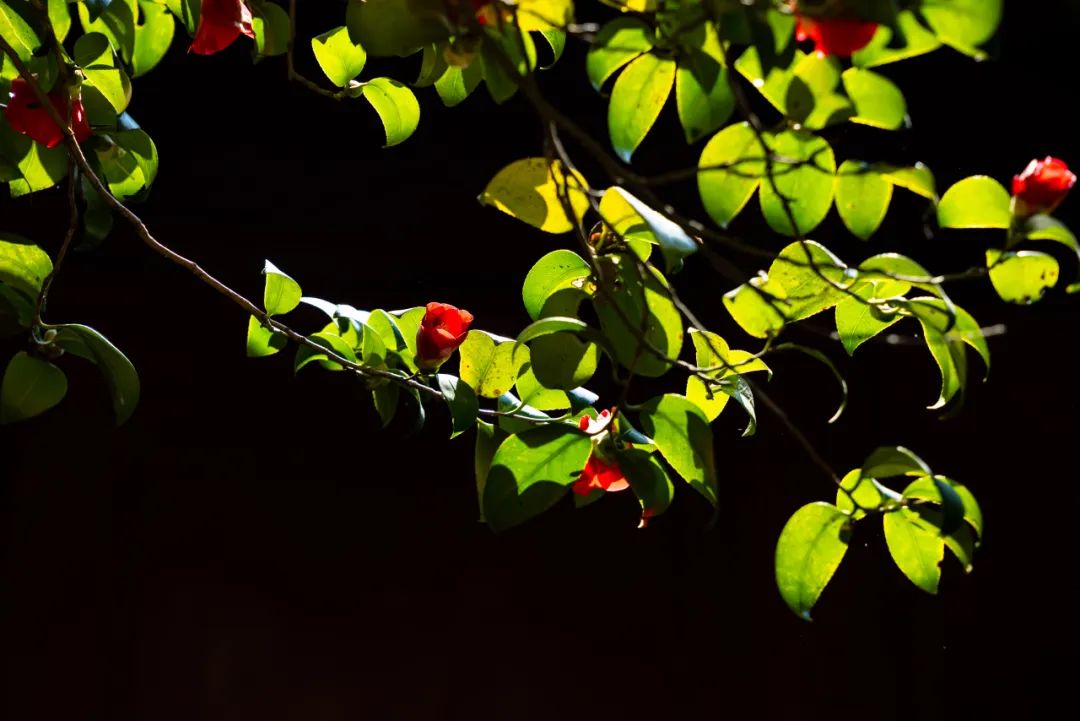
就像苦命的孩子早当家一样,一个饱尝人间冷暖的人,他会有一种温度;知道自己局限的人,就会知道我们人类该往什么方向发展。所以,佛陀首先肯定我们每一个人都有佛性,只要有佛性就都能成佛。
“白日不到处,青春恰自来。苔花如米小,也学牡丹开。”这是七百多年前的袁枚写的一首诗《苔》。苔,获得的阳光不多,但它依然可以盛开。
“白日不到处”,是一个如此不适合生命成长的地方,可苔藓却长出绿意,展现出自己的青春。它没有因为环境恶劣而丧失生发的勇气,而是用“恰自来”的勇敢绽放自己的生存本能和生活意向,焕发出生命的光采。
“苔花如米小”,细小低微的苔花,无法与国色天香的牡丹相较,但它依靠自己生命的力量,自尊自强,迎来大好春光。“也学牡丹开”,这是“苔”的谦虚。它盛开的本质和牡丹是一样的,苔花虽看着小,但是它的生命力跟牡丹花是一样的。
所以,我们每一个人要谦卑,但是不要自卑。
“天生我材必有用”,每一个“材”,每一个生命都是不同的,每个人头上都有青天、都有真理。
"Heaven endows each talent with its purpose." Each "talent," each life is unique, and above each person lies the same sky and truth.
曾在贵州石门坎支教的老师梁俊,带着学生们将这首诗登上央视舞台。一曲《苔》惊艳全国。
同样的诗歌,因为不同的演绎者而有了不同的内涵。贵州素有“十万大山”之说,石门坎更是位于贵州接近川滇最边缘的西北角。这样一个偏远之地,梁俊老师去到那里,教导这些孩子,鼓励他们——生命并没有偏和远,重要的是找到生命的自信。
梁俊老师创作的如《苔》一样的诗和歌,给了大山深处的孩子们“也学牡丹开”的勇气。或许是因为发自内心的坚定和期许,这首数百年前的小诗,竟在短短几分钟的舞台演绎里,变得更加动人。
一位好的老师,不仅是文化知识和技能技艺的传输者,也是人格和情怀的培养者。在这位老师身上,我们仿佛能看到菩萨的身影,通过演唱这首古诗,善巧方便地让每一个孩子找到生命的自信,教导他们让生命直立起来。
梁俊老师曾回忆说,“小时候,我也生活在大山里”,苦苦寻找人生的方向。当他找到了生命的乐趣,并把这种觉悟反哺给和他有同样经历的孩子时,生命已然活出别样的风采。
《苔》所散发出的生命之香,
已超越了花的馥郁。
它犹如一束光亮照进了心灵,在相生共荣的朴素情感里,焕发出直达人心的精神力量。
这首《苔》不仅是梁老师唱给学生们的,
也是唱给我们的。
它振奋了生命的自信,也赞美着我们的佛性。
The fragrance of life emanating from "The Moss" transcends the sweet scent of flowers.
Like a beam of light penetrating the soul, it radiates a spiritual power that touches hearts directly through its simple sentiment of mutual flourishing.
This poem of "Moss" is not only sung by Teacher Liang for his students but also for all of us.
It uplifts life's confidence and celebrates our Buddha-nature.
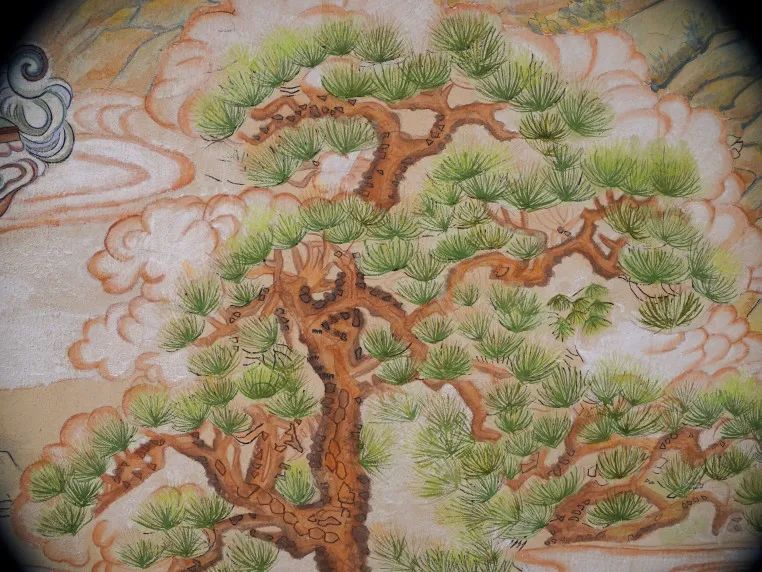
每一个生命都是尊贵、不可复制的,每一个生命皆有佛性。我们每个人身上,都折射着佛的微尘相好。
Each life is precious and uniquely irreplaceable; each life is endowed with Buddha-nature. Within each of us shines a reflection of the myriad perfections of the Buddha.
三千多年前,释迦佛陀舍弃王位,选择做一位老师。从此,祂行走于山林田野、村城国邑,说法四十余年、三百余会,只为让每个生命都认识自己的佛性,让每个生命都踏上佛性的觉醒之程。
Three thousand years ago, Shakyamuni Buddha renounced his royal position to become a teacher. From then on, He traveled through mountains, fields, villages, and kingdoms, teaching the Dharma for over forty years in more than three hundred assemblies, all to help each life recognize their Buddha-nature and embark on the path of awakening to this nature.
本师释迦牟尼佛是三界的导师,是我们最圆满的老师。我们皈依三宝,以三宝为师,就是将佛陀当作我们人生最高的模范,跟着佛学,愿意成佛,成为像佛陀那样的生命。
英文翻译:智航
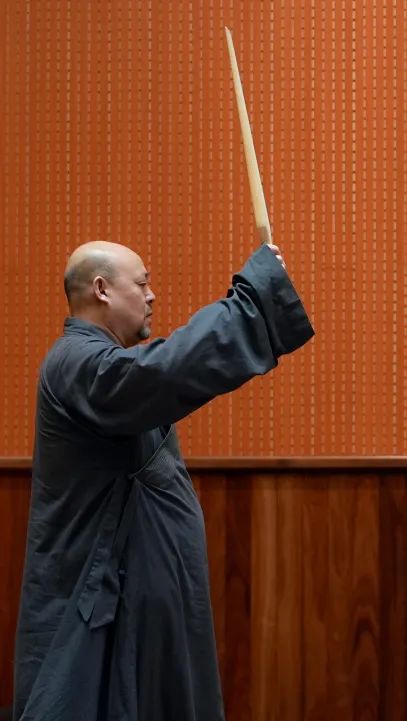

END
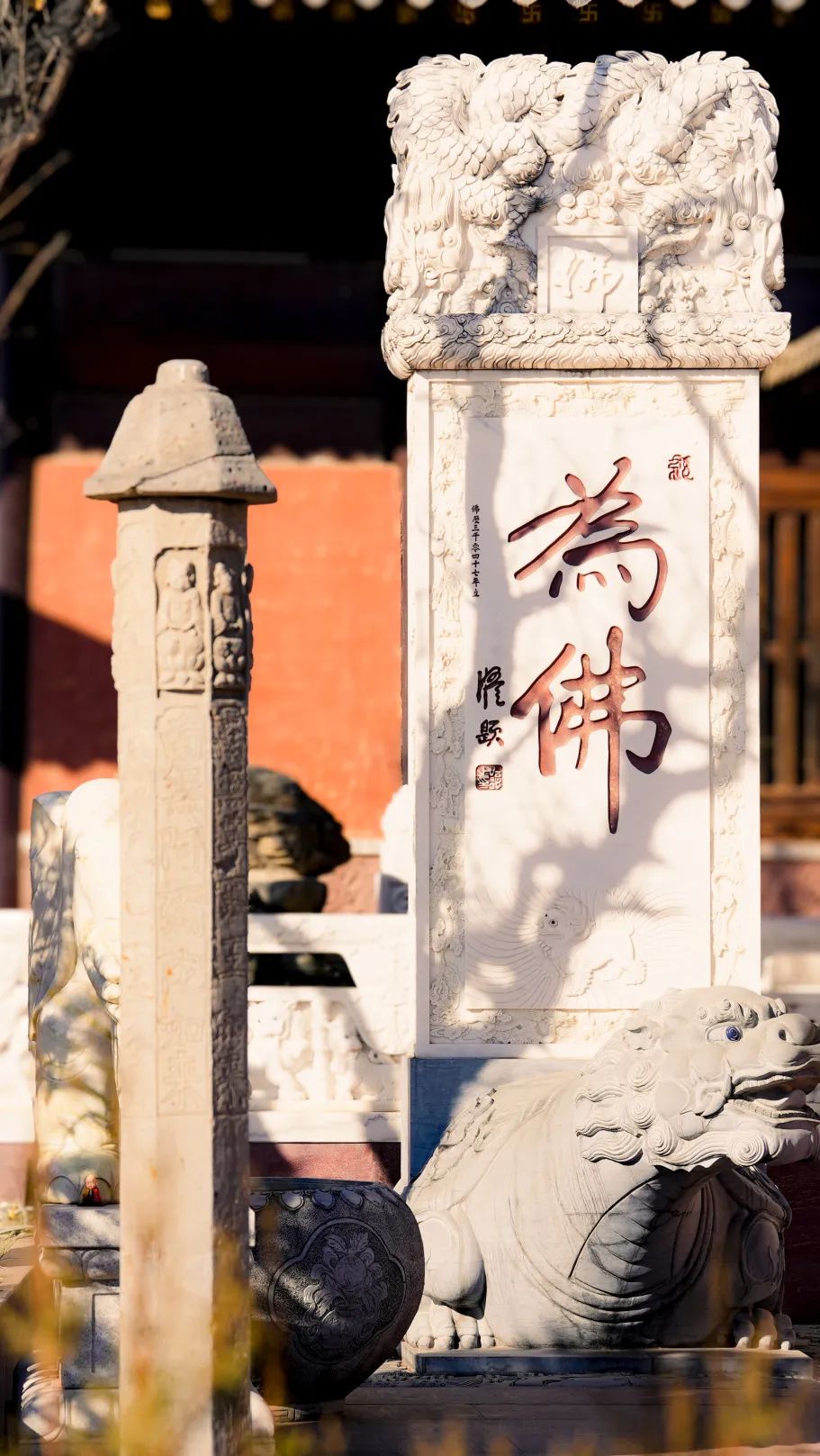
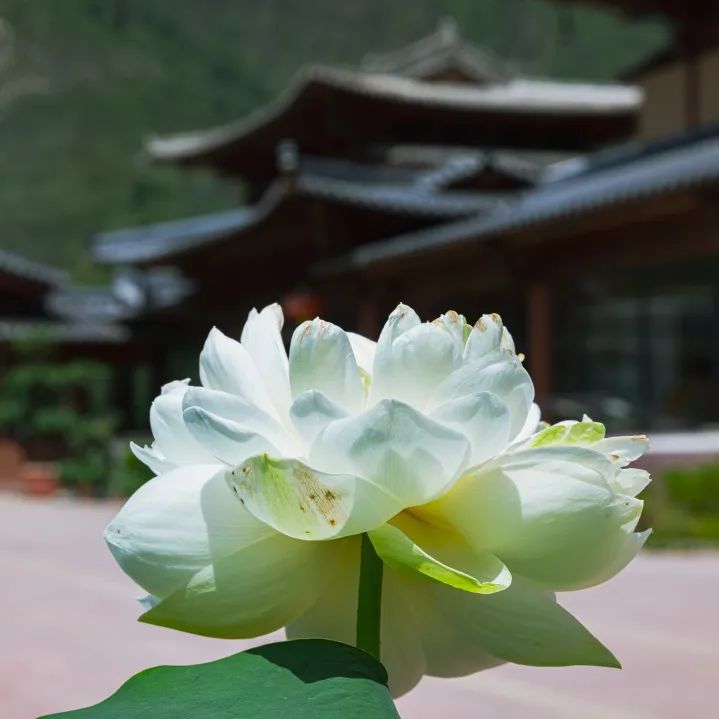
频繁刷手机,我们的心灵很容易被碎片化,不要沉溺其中,学会自我节制,
通过学习佛法来
有效滋养并净化我们的心灵,
一起回归心灵,保持身心灵的健康。
Namo Buddha
Namo Dharma
Namo Sangha
